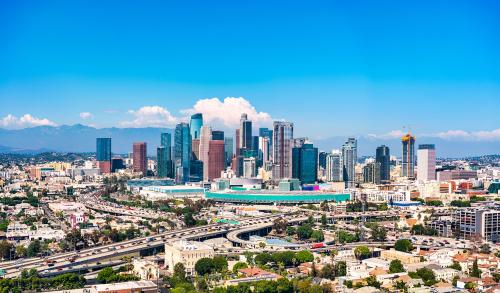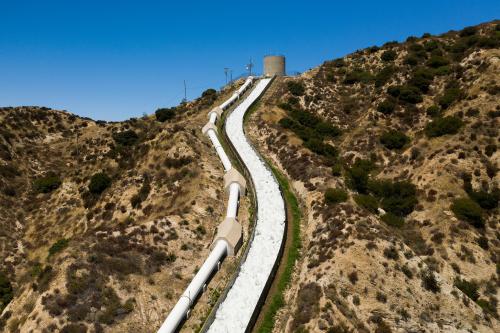Editor’s Note: In a piece for CNN’s Global Public Square blog, Bruce Katz presents his views on how American youth can prepare for the country’s shifting economy.
Get ready for a wild ride. The U.S. economy is restructuring from one characterized by consumption, debt and waste to one driven by exports (to take advantage of rising global demand), powered by low-carbon technology (to lead the clean energy revolution) and fueled by innovation (to spur growth through new ideas and production).
So how can you succeed in the next economy?
First, get educated. Our changing economy has created an iron law of wages: namely, the more you learn, the more you earn.
Between 1990 and 2009, median annual earnings fell for workers with a high school education or less and grew for those with a bachelor’s degree or more. Workers with a BA or higher earned nearly 80 percent more than those with just a high school diploma in 2009.
In the midst of an anemic economic recovery, education is critical to employment. The unemployment rate for those with a BA stands at just 4.3 percent, compared to 8.2 percent for those with only some college or associate’s degree; it is 9.6 percent for those with a high school degree and a stunning 14.3 percent for those with less than a high school diploma.
Second, follow your passion. Given the role of work in our lives, it’s best to combine vocation and avocation.
Interested in travel? Embrace the world and engage in the international exchange that will drive 21st century economies. The most diverse nation in the world should have a built-in advantage to connect to rapidly developing countries across the globe.
Environmentally-conscious? Accelerate the trend of sustainable growth: Clean tech; organic farming; energy efficient products; low carbon cities. Your generation has the potential (and obligation) to repair the damage of the past 60 years. Do well and do good.
Like to tinker? Be a part of technological acceleration, from generating ideas to producing and deploying what we invent. There is no limit to the goods and services we need to serve individual consumers (e.g., smart homes, remote health care, self-driving vehicles) as well as build the collective city (e.g., small cars, energy saving technology).
Third, don’t be afraid to make stuff. U.S. policymakers have diminished and dismissed manufacturing for decades. Yet manufacturing and innovation are inextricably linked; the less we produce, the less we innovate. To prosper, the U.S. must make things again.
As the baby boomers begin to leave the manufacturing work force, a gap is emerging in our productive capacity: a recent study from the National Association of Manufacturers found that 32 percent of industrial companies reported “moderate to serious” skills shortages, including 63 percent of life science companies and 45 percent of energy firms.
So if you are good with your hands, or have the technical capacity for advanced manufacturing, find a place to excel producing something that can be proudly stamped “Made in USA.”
Finally, place matters. The next economy will be a differentiated one, enabling cities to leverage their distinctive assets and attributes. Think about work as the product of an eco-system of innovative firms, talented workers and supportive research institutions and intermediaries. Find the right place with the amenities you crave and the thick labor market you need … and opportunity will naturally follow.
The Brookings Institution is committed to quality, independence, and impact.
We are supported by a diverse array of funders. In line with our values and policies, each Brookings publication represents the sole views of its author(s).



Commentary
Career Advice for a 16-Year-Old American
September 16, 2011